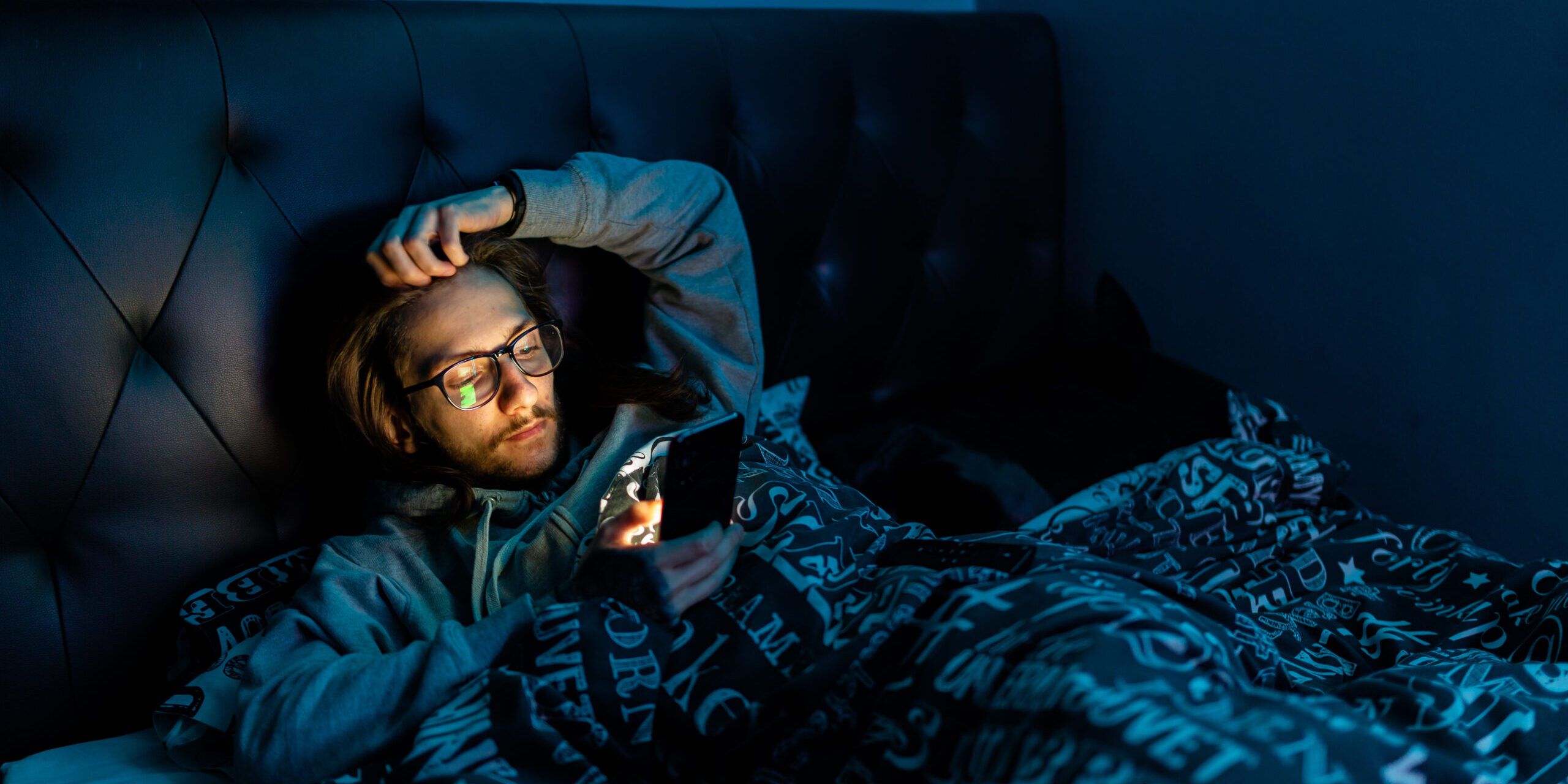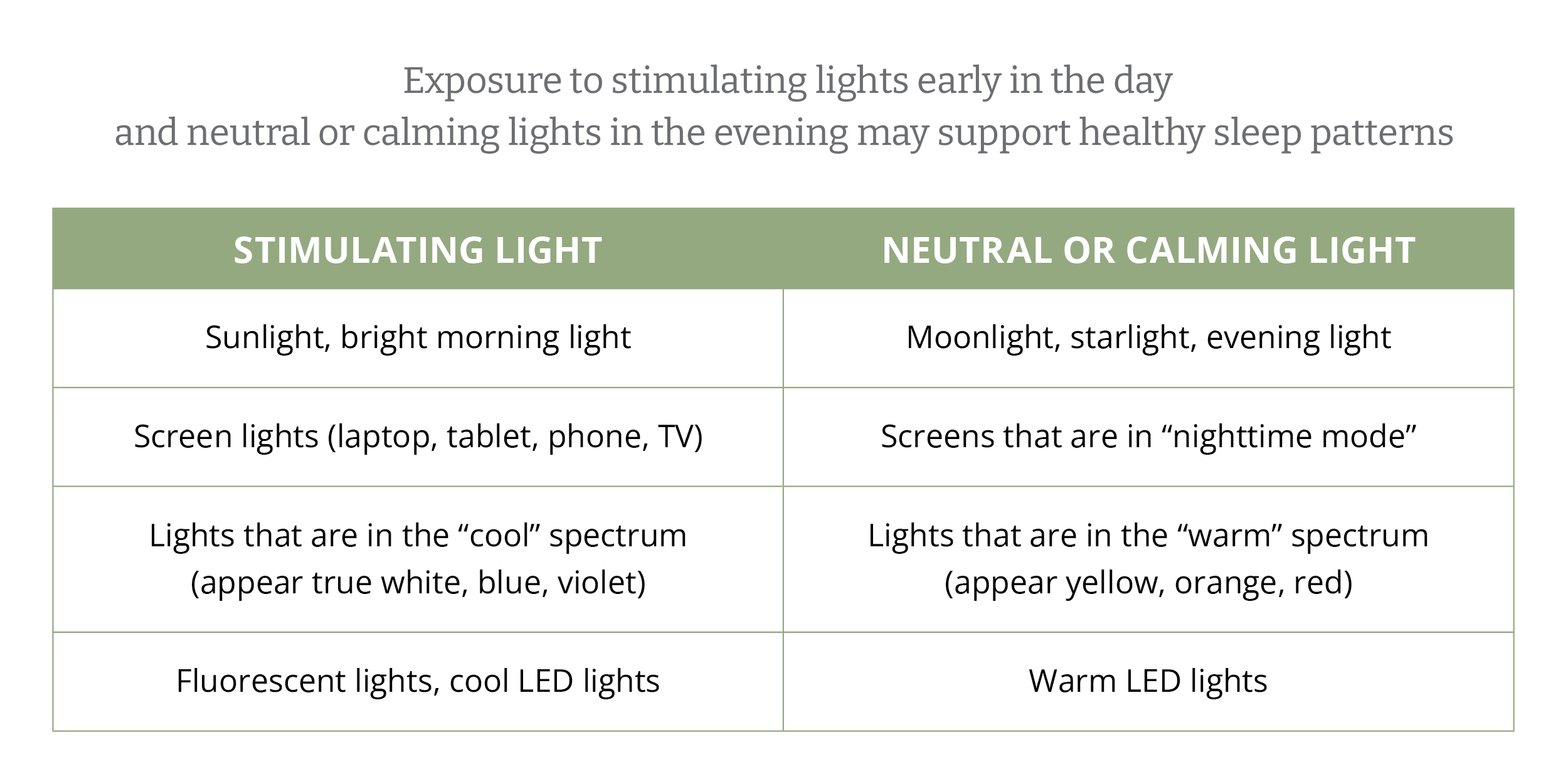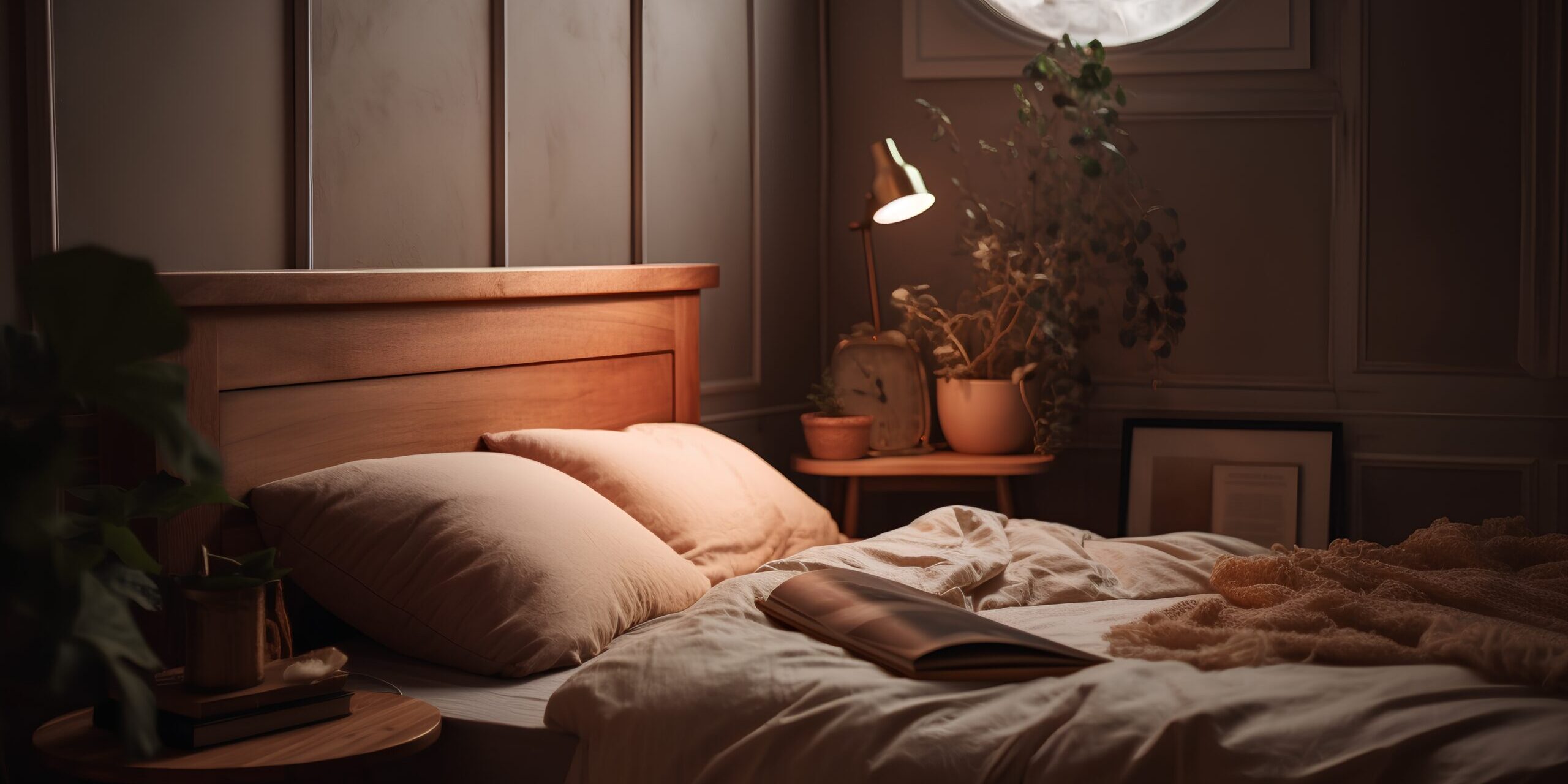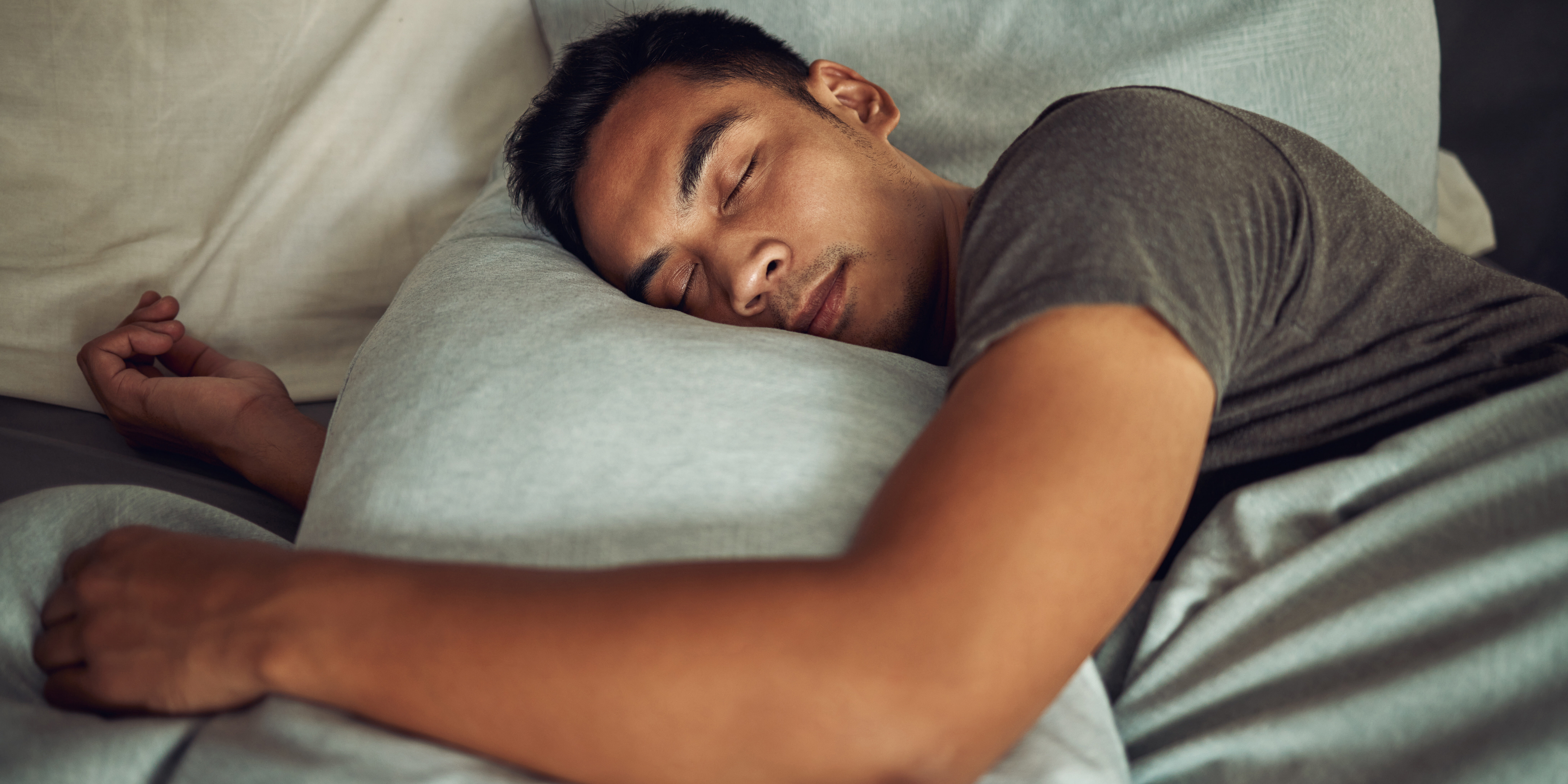Sleep Hygiene: Foundational Techniques for Your Best Sleep
by Hilary Miller, ND
According to the CDC, one-third of adults are not getting enough sleep.
Inadequate sleep and the resulting fatigue can make normal activities feel impossible or overwhelming. A bad night’s sleep causes people to lose focus at work, eat more processed and sugary foods, skip workouts and physical activity, and withdraw from social engagements. It is no wonder that chronic sleep deficiency is associated with type 2 diabetes, cardiovascular disease, obesity, and depression.
Poor sleep is also linked to poor memory and reduced cognitive performance. Modern life is characterized by sleep-impairing features like artificial lights, long work hours, complex social interactions, sedentary lifestyles, heavy computer use, and high emotional stress.
The framework for natural sleep improvement is called “sleep hygiene”. Sleep hygiene is a set of simple behaviors that promote optimal sleep in most people. Each component corrects behaviors that impair sleep. Incorporating sleep hygiene is the first step to increasing sleep and improving long-term health.

Light Conditions Influence Sleep Quality
The two primary sleep/wake hormones are melatonin and cortisol. These hormones run on a 24-hour cycle that is influenced by environmental light. Natural light is bright during the day and dark at night and this light rhythm supports optimal sleep.
However, a major feature of modern life is exposure to artificial light throughout the day and well into nighttime. From computer screens to TVs, phones, streetlights, and fluorescent lights, unnatural light rhythms are everywhere. When light rhythm is off, melatonin and cortisol can become dysregulated, altering sleep quality.
Melatonin is suppressed by daylight, and increases about an hour after dark. Melatonin helps a person stay asleep for as long as their environment is dark. But screens and fluorescent lights can interfere with this function. Cortisol rises dramatically after waking and exposure to light. However, many people stay inside most of the day and rarely get full daylight exposure.
A key component of sleep hygiene is establishing a regular light schedule, harnessing the body’s automatic rhythm mechanisms. Reducing exposure to stimulating lights at night (see table below) can promote melatonin secretion. Many people will use blackout curtains in bedrooms to reduce artificial light at night, or to mimic nighttime light if they work a night shift schedule. Full daylight exposure or daylight-mimicking LED lamps signals cortisol secretion in the morning. Establishing a schedule with light and darkness has been shown to support optimal circadian rhythms and sleep.

Set the Stage for Better Sleep
Sleep hygiene techniques include prioritizing a relaxing and restful sleep setting. Bedrooms should be centered around sleep and nothing else. When the bedroom doubles as an office, children’s play room, or TV room it can be difficult for the mind to associate an otherwise busy environment with sleep. TVs, computers, and even phones might need to stay in another room to set up the best sleeping environment possible.
Regular bedtime and routine may support better sleep. Consciously winding down in the evenings by reading a book or drinking tea sends an external signal to the brain that it’s time to relax. This applies to children and infants, too. A relaxing environment and predictable bedtime routine is conducive to sleep at all ages.

Adopt a Sleep-Promoting Lifestyle
After-dark isn’t the only time to address sleep quality. You can implement sleep hygiene techniques that support rest throughout the day. Research shows that regular exercise, meditation, stress management, yoga (or other mindfulness activities), and listening to relaxing music during the day can support sleep. Lifestyle factors that influence sleep include diet. Some common substances like alcohol and caffeine may impair sleep, so reducing or eliminating these is may be important to support better sleep quality.
Protect yourself and your sleep by reducing stress wherever possible. Establish boundaries that ensure a proper work-life balance so you can rest after the workday. Prioritize relationships that uplift and bring you joy, rather than add to your worries. Say, “no,” to the tasks you can’t reasonably manage and reap the sleep benefits of less stress.
Supplements to Support Better Sleep
Nutritional supplements are not exactly sleep hygiene, but just as caffeine and alcohol can impair sleep, some supplements can improve sleep. Many people take melatonin to help them sleep. This appears to help people fall asleep, although might not help them stay asleep. Melatonin is generally considered safe and effective for sleep onset support.
There are many herbs that support sleep. Relaxing herbs include valerian, chamomile, lemon balm, California poppy, skullcap, and magnolia (among others). These supplements are more effective when combined with light therapy, mindfulness, exercise, a good sleep environment, and a positive approach to sleep, i.e., sleep hygiene.

Seek Help When Sleep is Poor
The science of sleep is complex and profound, and persistent problems with sleep warrant a doctor’s review. There are some known health conditions that impair sleep, such as breathing disorders, chronic pain, restless legs syndrome (RLS), anxiety, hot flashes (menopause), and urinary tract disorders. Although sleep hygiene is still useful for these cases, most people may need to address serious issues with their doctor.
DUTCH Insights for Supporting Sleep
The DUTCH Test can be a powerful tool to uncover the culprit(s) of poor sleep for insomnia patients and in cases of chronic fatigue. Low melatonin production and cortisol dysregulation may contribute to sleep trouble. Providers can evaluate melatonin, cortisol, and other biomarkers with the DUTCH Test to investigate the potential root cause of a patient’s difficulty sleeping.
Pair DUTCH testing with sleep hygiene practices to support and sustain restful sleep.
References
- CDC- Data and Statistics- Sleep and Sleep Disorders 2017 [July 25, 2022]. Available from: https://www.cdc.gov/sleep/data_statistics.html.
- Rosenthal NE, et al. Phase-shifting effects of bright morning light as treatment for delayed sleep phase syndrome. Sleep. 1990;13(4):354-361.
- Van Maanen A, et al. The effects of light therapy on sleep problems: A systematic review and meta-analysis. Sleep Medicine Reviews. 2016;29:52-62.
- Hysing M, et al. Sleep and use of electronic devices in adolescence: results from a large population-based study. BMJ Open. 2015;5(1):e006748-e006748.
- Gabel V, et al. Effects of artificial dawn and morning blue light on daytime cognitive performance, well-being, cortisol and melatonin levels. Chronobiol Int. 2013;30(8):988-997.
- Zhou ES, et al. Integrative Medicine for Insomnia. Med Clin North Am. 2017;101(5):865-879.
- Wang W-L, et al. The effect of yoga on sleep quality and insomnia in women with sleep problems: a systematic review and meta-analysis. BMC Psychiatry. 2020;20(1).
- Feng F, et al. Can music improve sleep quality in adults with primary insomnia? A systematic review and network meta-analysis. Int J Nurs Stud. 2018;77:189-196.
- Proserpio P, et al. Insomnia and menopause: a narrative review on mechanisms and treatments. Climacteric. 2020;23(6):539-549.
- Winkelman J. Overview of the treatment of insomnia in adults. 2022. In: UpToDate [Internet]. Waltham, Mass: UpToDate, [cited July 7, 2022].


